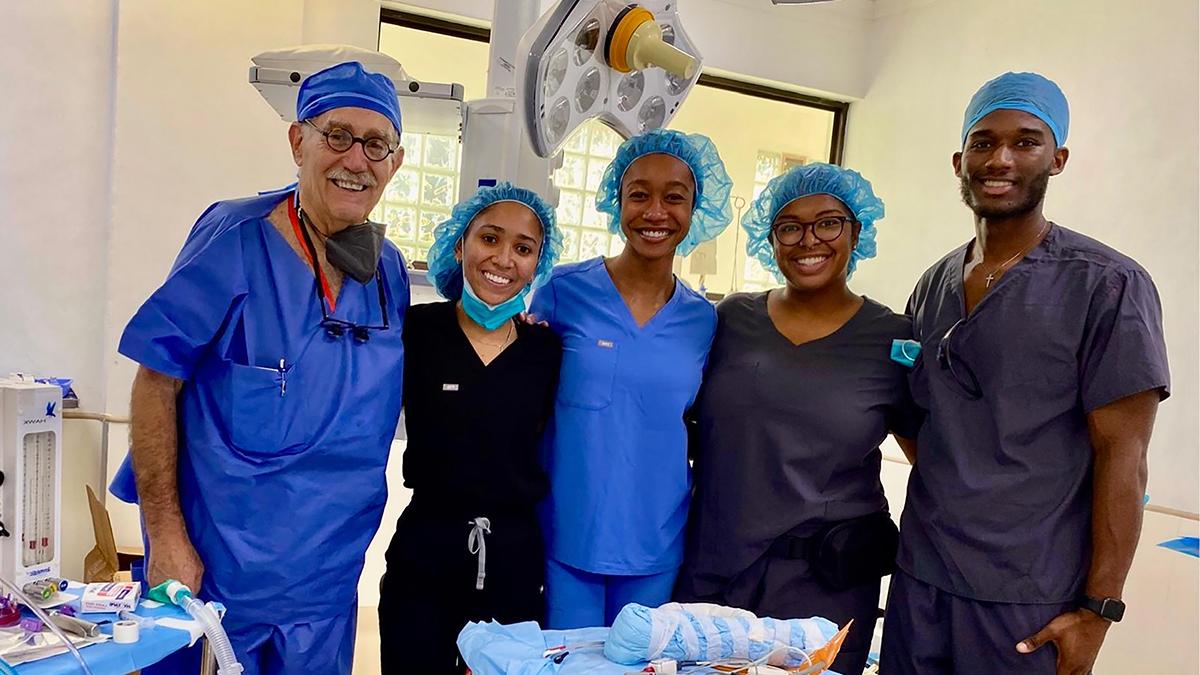Shelley Earp’s fascination leads to fulfillment
A physician and cancer research scientist, the 2024 Winter Commencement speaker talks about his life and his love.

Described by colleagues as a brilliant scientist — and having lived a life enhanced by love and curiosity — Dr. Shelton “Shelley” Earp III wants to inspire Carolina graduates at the 2024 Winter Commencement. The graduation ceremony, open to the public, will begin at 2 p.m. Dec. 15 at the Dean E. Smith Center.
Earp, Distinguished Professor of Cancer Research, Medicine and Pharmacology, put Carolina at the forefront of cancer treatment and prevention. He directed the UNC Lineberger Comprehensive Cancer Center twice (for a total of 22 years), continues to head a lab that seeks new cancer treatments and chairs the National Cancer Institute Board of Scientific Advisors.
Earp answered questions about his life, including how he and his late wife, Jo Anne, met and why he’s been at Carolina for nearly five decades.
How did you grow personally as UNC’s cancer research efforts grew?
When I came to UNC medical school, I was fascinated by what we now call molecular medicine — molecular biology and how it might affect human disease. I initially thought psychiatry and the molecular roots of the mind-body problem were in my future but became fascinated by studies of how cells talk to each other. My first lab was a single-wide trailer just installed across Manning Drive as part of the med school’s expansion. I loved it, and it led me to cancer research.
I interned at Vanderbilt for a year and in June 1971 was surprised by a draft notice. Fortunately, my research experience led to assignment as an investigator studying gene regulation in Frederick, Maryland, rather than a tour in Vietnam. There are inflection points in one’s life, and this one led to my career and meeting the love of my life.
What brought you back to Chapel Hill?
Jo Anne was a graduate student in health behavior at Johns Hopkins. We met, fell in love quickly, and had an extraordinary marriage and partnership for 50 years. I advocated for a return to UNC. While she had been in the Civil Rights Movement in Mississippi in the ’60s and wasn’t wild about returning to the South, I convinced her that Chapel Hill was different.
Dr. Robert Ney, my mentor, was chair of the department of medicine and paved the way for my residency and fellowship. A second inflection point, as Jo Anne and I were able to join the faculty. Two-career families weren’t as common then.
What in your early life influenced you?
As a teen, I was a Boy Scout. My scoutmaster was a strong mentor who helped me become an Eagle Scout and a junior assistant scoutmaster, so I gained some leadership experience.
I attended a terrific engineering high school, Baltimore Polytechnic, but I decided that I wanted to be a doctor. I left Poly as a junior and entered college. I still don’t have a high school diploma. Obviously, in the ’50s, one’s mother didn’t discourage you when you said, “I want to be a doctor.”
What keeps you in cancer research?
I love it. Both aspects, the discovery and the privilege of working with so many leaders, faculty and staff to build a broad research endeavor with national impact and a first-class clinical program to care for the citizens of North Carolina. Jo Anne always kept public health and human concerns at the top of my list. The discovery component continues to explode with new technology; it makes lifelong learning a joy.
People want and deserve a cure, but the 200 diseases we call cancer are complex. However, research is leading to a dramatic increase in cancer-patient longevity with quality of life. Jo Anne lived seven years after a diagnosis of endometrioid ovarian cancer because of immunotherapy research by people here and elsewhere.
What might you tell the graduates?
I want to impart ideas of curiosity and passion because it gives your life purpose. You have to balance that with being happy. Successful people who are unhappy exist, but the majority of successful people have a purpose and a sense of joy.






